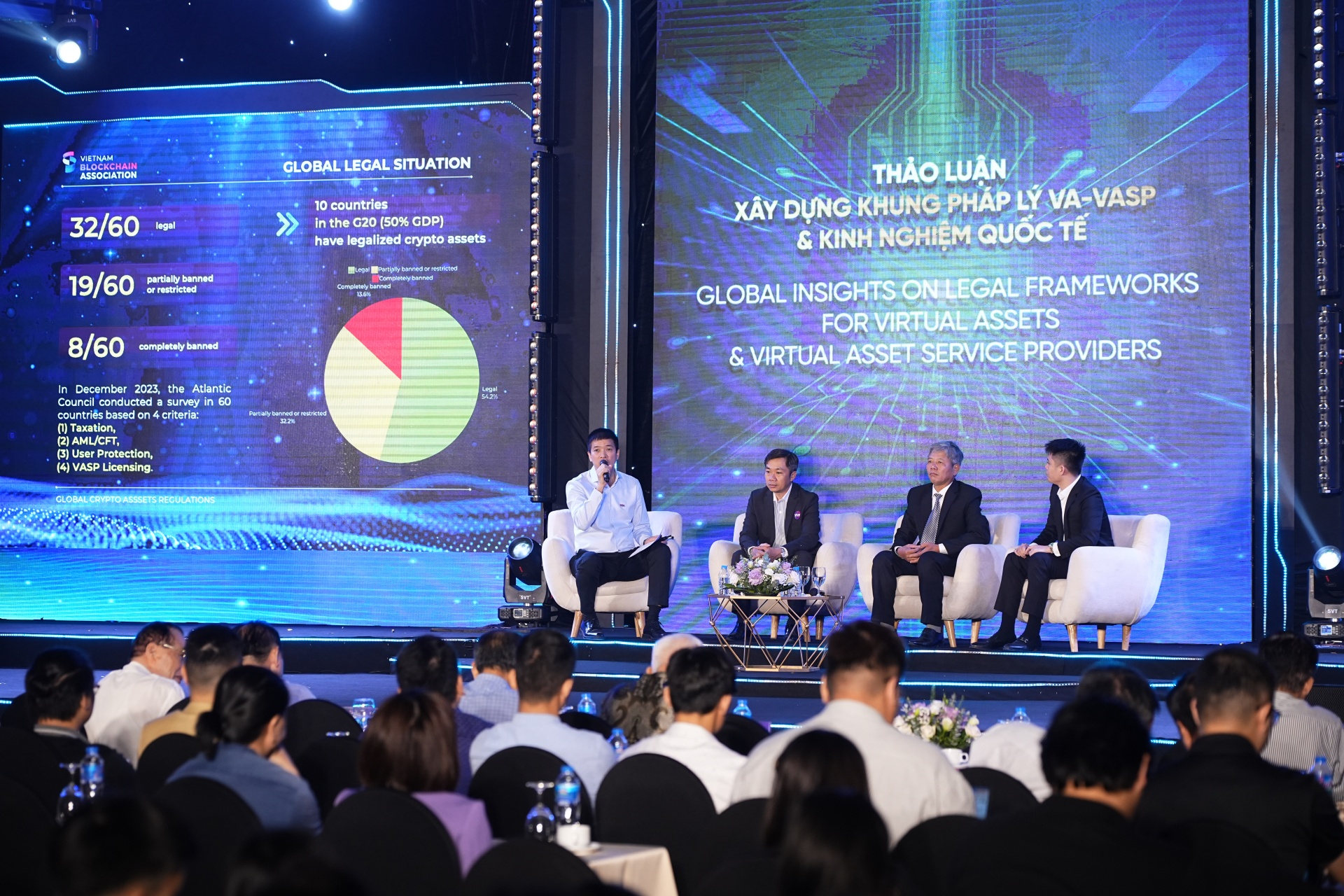INTERNATIONAL INVESTMENT
AND PORTAL
As part of the second anniversary celebration and the annual forum “Blockchain and AI: The Revolution of the Future,” the Vietnam Blockchain Association organised its fourth scientific panel discussion on April 24, aiming to develop and improve the legal framework for Vietnam’s virtual asset.
Phan Duc Trung, vice chairman of the Vietnam Blockchain Association (VBA) said, “It is a challenging task to implement a comprehensive policy for virtual asset service providers (VASPs) at this time because it requires coordination among various industries and sectors.”

In Vietnam, up to the present time, there have been 18 documents related to virtual asset (VA) issued. The most notable one is Decision No. 194/QD-TTg dated February 23, 2024, signed by the Prime Minister, which presents the national action plan to implement the commitments of the Vietnamese government in anti-money laundering, counter-terrorism financing, and counter-proliferation financing to remove Vietnam from the Financial Action Task Force’s grey list.
Within this context, the key issues related to the management of VA are regulated in Action 6 (which aims to improve the legal framework to prohibit or manage virtual asset before May 2025) and Actions 7 and 8, which involve the dissemination of policies in the private sector.
Currently, the plan is focusing on two priorities: anti-money laundering/counter-terrorist financing and a VASP standards. However, the remaining two standards, namely cryptocurrency asset tax and user protection, have not received sufficient attention yet to form a complete legal framework.
Do Viet Cuong, chief inspector of the State Bank of Vietnam - Thua Thien Hue Branch said, “Being on the grey list will have a significant impact on financial and monetary issues, causing difficulties in attracting foreign investment and international economic cooperation. Transaction costs will also increase as international financial institutions enhance their monitoring and scrutiny of Vietnam's transactions. Access to funding will also become more challenging as international financial institutions restrict lending or investment in Vietnam.”
According to attorney Tran Quoc Bao from Pantheon Law Firm, Vietnam has only one year left to prepare for the establishment of a legal framework for managing virtual assets.
“We have high expectations that the government will introduce regulations in line with international standards to tightly regulate virtual assets, aiming to optimize tax revenue, protect users, and combat money laundering and terrorist financing. If we ban virtual assets, we will completely miss out on a new generation of investors who are highly interested in Vietnam, where 20 per cent of the population owns cryptocurrency assets,” Bao said.
The panel discussion aims to gather feedback and suggestions from the community, businesses, and direct dialogues with government regulatory agencies to contribute ideas to the development of a comprehensive legal framework for managing virtual assets before the deadline of May 2025, as requested by the government.

At the conference, attended by over 1,000 delegates, the VBA announced the second season of the Switch Up Accelerator programme, which supports fundraising for technology startups. They also shared an overview of the blockchain industry in Vietnam and globally before and after the fourth Bitcoin halving event.
This event also marks the official launch of the Academy of Blockchain and AI Innovation, along with the strategy to train and popularise blockchain and AI for one million individuals by 2030, including 100,000 students from 30 universities nationwide.
Additionally, there will be collaboration programmes with law firms to implement online legal projects to provide legal support to the community.
According to a survey report conducted in 60 countries based on four standards: tax, anti-money laundering, counter-terrorist financing, user protection, and virtual assets standards by the Atlantic Council, as of December 2023, 32 out of 60 countries have officially legalised cryptocurrency assets.
Notably, all 10 countries in the G20 (which account for half of global GDP) have officially issued regulations governing virtual assets.
By Thai An



















